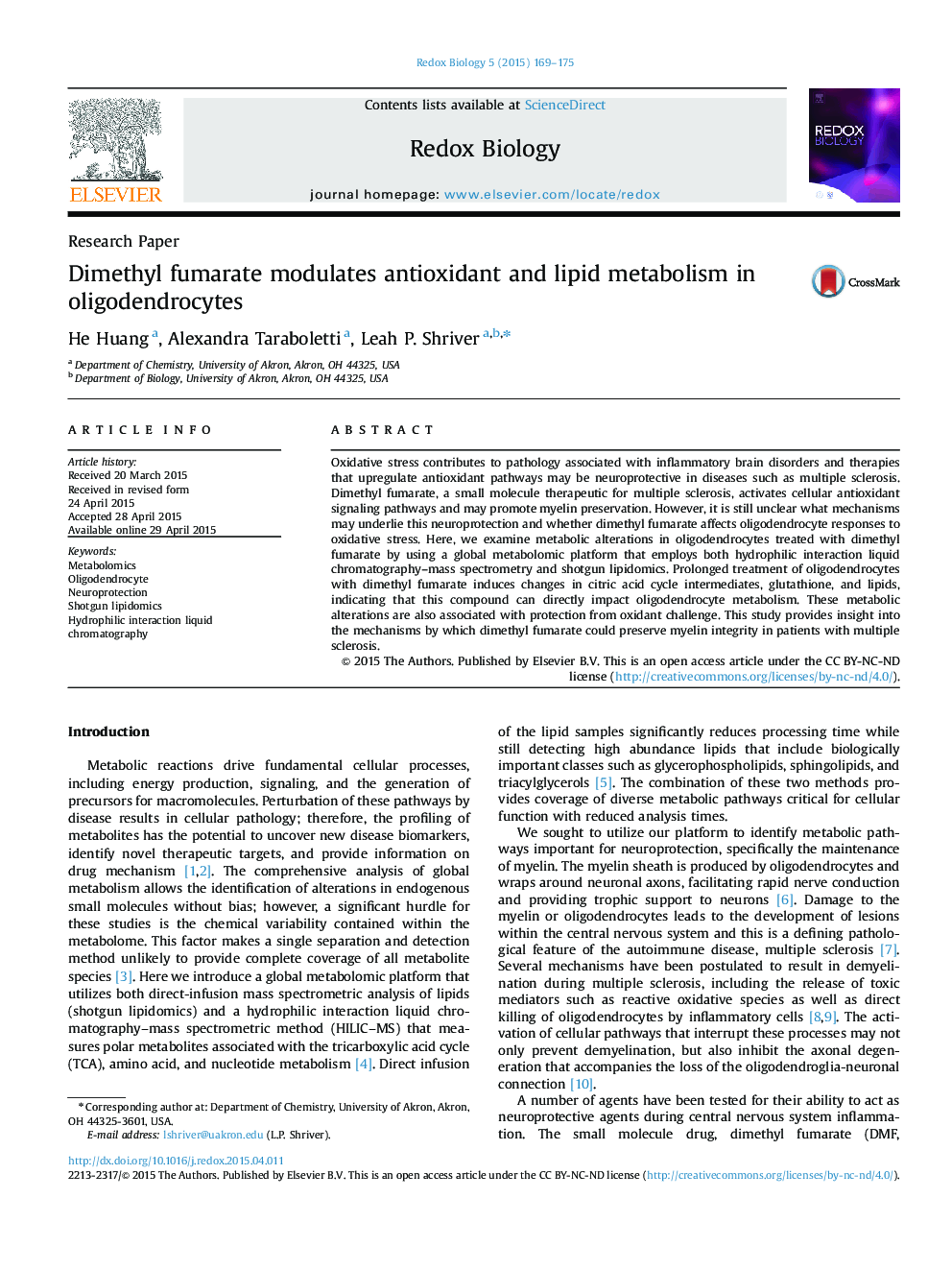| Article ID | Journal | Published Year | Pages | File Type |
|---|---|---|---|---|
| 1923153 | Redox Biology | 2015 | 7 Pages |
•DMF treatment significantly alters oligodendrocyte metabolism.•DMF induces upregulation of antioxidant responses after prolonged treatment and these are protective against oxidative insults.•Global metabolomics can provide insight into drug mechanism.
Oxidative stress contributes to pathology associated with inflammatory brain disorders and therapies that upregulate antioxidant pathways may be neuroprotective in diseases such as multiple sclerosis. Dimethyl fumarate, a small molecule therapeutic for multiple sclerosis, activates cellular antioxidant signaling pathways and may promote myelin preservation. However, it is still unclear what mechanisms may underlie this neuroprotection and whether dimethyl fumarate affects oligodendrocyte responses to oxidative stress. Here, we examine metabolic alterations in oligodendrocytes treated with dimethyl fumarate by using a global metabolomic platform that employs both hydrophilic interaction liquid chromatography–mass spectrometry and shotgun lipidomics. Prolonged treatment of oligodendrocytes with dimethyl fumarate induces changes in citric acid cycle intermediates, glutathione, and lipids, indicating that this compound can directly impact oligodendrocyte metabolism. These metabolic alterations are also associated with protection from oxidant challenge. This study provides insight into the mechanisms by which dimethyl fumarate could preserve myelin integrity in patients with multiple sclerosis.
Graphical abstractFigure optionsDownload full-size imageDownload as PowerPoint slide
